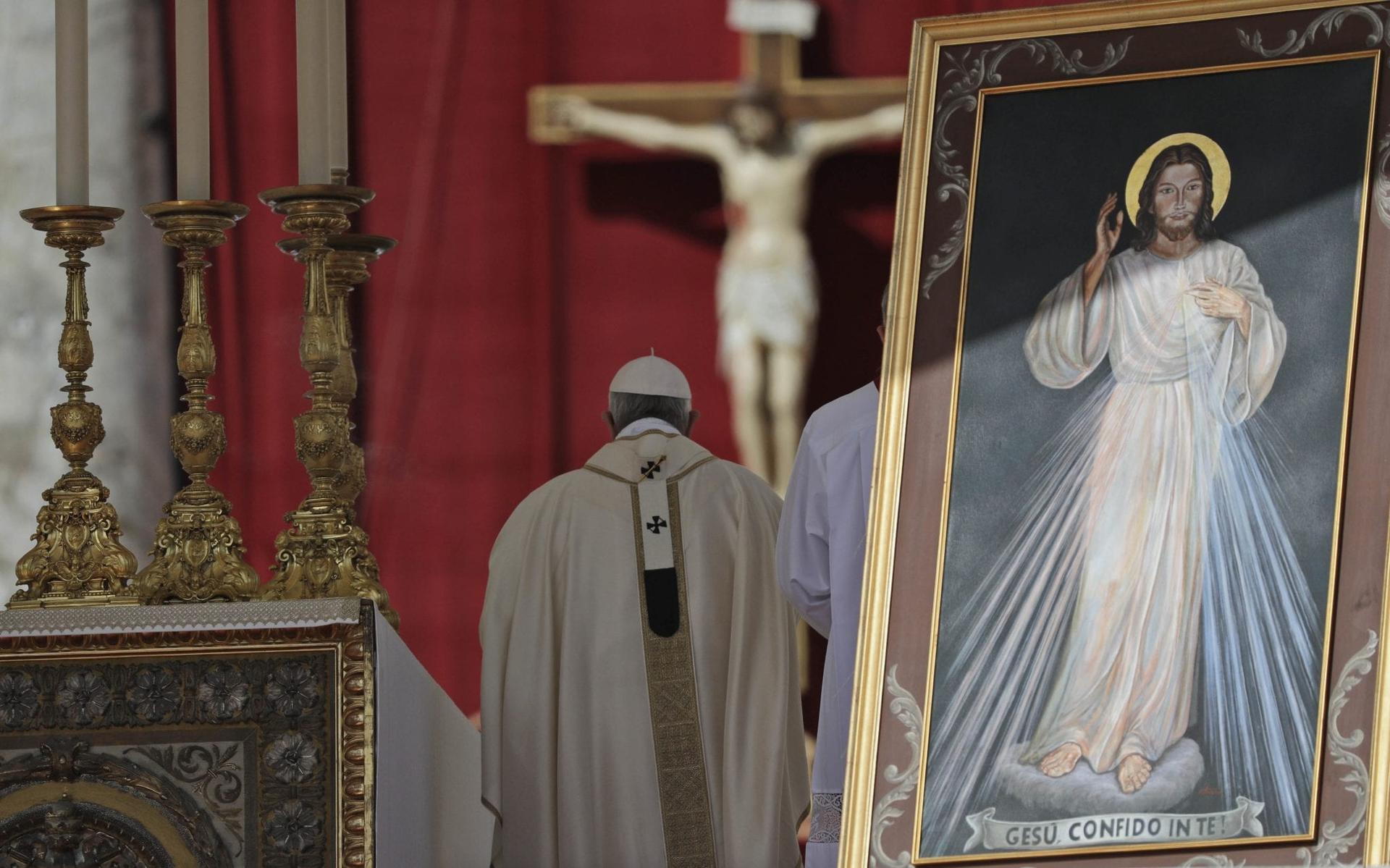This weekend Christian believers conclude the eight-day celebration of the Lord’s Resurrection. Begun on Easter morning, the octave concludes today. And of all the things that the Church could highlight on this day, she turns her might and invites all men and women to reflect on God’s mercy and compassion.
Today, in response to the hurt and harm of our fallen world, the Church echoes the Lord’s summons to receive and to offer mercy.
For the believer, mercy is a consolation that turns quickly into a challenge. The mercy that is freely offered to all becomes a challenge to dispel the lies of fear and to trust in the ways of God.
Life can certainly dish out an array of failures and disappointments. These have a way of leaving bad memories and scars on our souls. We recall these events and fear repeating them or letting others repeat them against us.
In response, we put up walls and barriers around our hearts and foster an obsessive caution in our interaction with others. In such an environment, we lose air to breathe, our souls shrink, and our lives become nothing but bundles of misery and anxiety.
Our personal fears are accentuated by national and worldwide economic troubles, questions of safety, and a lack of peace among peoples of different races and religious creeds.
Fear is a contagious spirit. It is a false evangelist that proclaims a false gospel. It lives to spread itself and eclipse hearts with a restless darkness.
Is this how we are to live? Is there nothing beyond fear?
The Christian message of forgiveness, tenderness and compassion offers us a contrasting worldview and presents to us a different way of life. The Christian gospel reminds us that we are free to worship God without fear, knowing of his love and goodness toward us. It shows us that we are also able to approach others without suspicion.
By drawing close to God, we can build bridges to those around us. Our confidence in God can empower us to see the possible good in life. It can break the shackles imposed by a life of fear. It can scatter darkness and teach us the ways of light and goodness.
As taught by the Lord Jesus in the gospels, and repeated by him in our age to his servant Saint Faustina, the message of mercy and trust give us a foundation upon which we can love God and others. It becomes a springboard from which we can live abundant lives of great hope and joy.
When failure and distress come, the message of mercy reminds us of God’s providence and the virtue of others. Mercy allows us to hope beyond ourselves. It points us to a renewed confidence in God and in others.
The message of mercy, accentuated on this eighth day of Easter, allows us to change our lives and to suffer so that we may become better people for our own sakes’ and for those around us. It calls us to hope and seek for the same change in the hearts of those around us, especially those closest to us.
The weakness of lying is matured by integrity. The difficulty of an unforgiving spirit is healed by compassion and kindness. In these, and in so many other twists and turns of life, we are free to accept the message of mercy and not succumb to desolation, or feed a fear about our own weaknesses, or fall into the trap of rash judgment or unforgiveness toward others.
The choice is ours.
In a world that at times encourages us to create masks and facades and to die behind them, the message of mercy summons us to remove such shackles. It invites us to accept our faults, not be defined by them, and to labor to be better.
In a world that at times seems paralyzed by uncertainty and fear, mercy breaks out and motions for us to follow it, to love ourselves and others, and to selflessly work for a civilization of love and goodness.
Mercy teaches us not to fear the disapproval, darkness, or criticism of those around us or the weaknesses and failures within us. It shows us our place and the role we can play in spreading God’s kingdom of reconciliation and peace in our world today.
On this Mercy Sunday, will this invitation be accepted? Will the charge take hold?
















